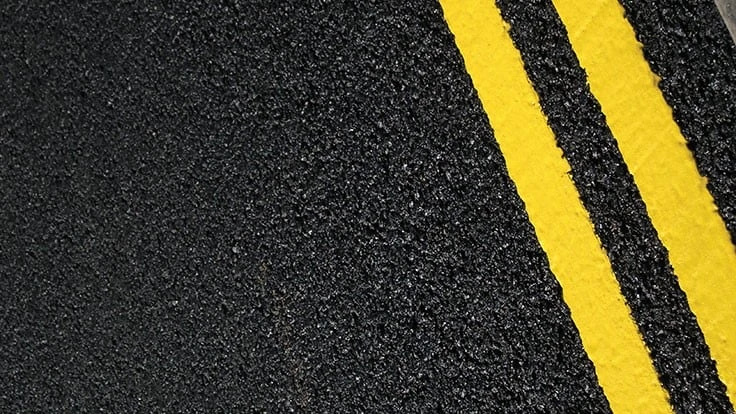
© Victor Burnside | Dreamstime.com
.gif)
Association
What do you do when you have a mountain of 71,000 plastic bags? Recycle them.
The first installation of the Plastics Industry Association's (Plastics) New End Market Opportunities (NEMO) project recently recycled the equivalent of 71,000 retail shopping bags to pave a parking lot at member company LyondellBasell's Technology Center in Cincinnati.
LyondellBasell partnered with Colas Solutions of Cincinnati, Domino Plastics of Bakersfield, California, and Barrett Industries of Roseland, New Jersey, to add more than 4,000 pounds of recycled polyethylene (rPE) film to hot asphalt and pave its parking lot.
The new asphalt formulation—developed in partnership with the National Center for Asphalt Technology (NCAT) at Auburn University—in Alabama offers many of the same benefits of traditional polymer-modified asphalt, including improved performance and increased lifespan at a decreased cost.
There is a potentially huge market for it. An estimated 200 million pounds of rPE could be incorporated into parking lots and roads across the United States.
Plastics is leading scientific research, demonstration projects and identifying new markets, such as paving using recycled plastics. SC Johnson is planning a second demonstration project for recycled polyethylene film-infused asphalt at its Racine, Wisconsin, headquarters.
Using pellets created by Erema North America, Ipswich, Massachusetts, this next NEMO project, scheduled to commence in the next few weeks, will recycle the equivalent of 88,000 plastic retail bags, or 1,200 pounds of rPE.
Despite the logistical hurdles of COVID-19, LyondellBasell's and SC Johnson's paving projects have progressed quickly due to the dedication of all their participants to recycling and sustainability. It was only June when Plastics announced the completion of NCAT’s research on a new formulation of asphalt binder using plastic film recovered from retail locations.
"An estimated 200 million pounds of rPE could be incorporated into parking lots and roads across the United States."
With a unique position representing the entire supply chain—from materials suppliers and equipment manufacturers to processors and recyclers—our association plays an important role helping the plastics industry to collaborate, proving plastics' benefits and end-of-life applications.
Asphalt is just one of them. In 2015, Plastics launched the End-of-Life Vehicle (ELV) Recycling Demonstration Project to study the viability of collecting and recycling plastic car parts, particularly bumpers, to be used as materials for new products. Soon-to-be published results could provide a model for plastics, auto and other industries to follow.
In my six years at Plastics, I’ve had the opportunity to work with many innovative companies, developing novel solutions to recycling and sustainability. We're working hard to reduce waste and to increase reuse and recycling, while anti-plastics groups want to simply eliminate one of the world's most useful materials.
To learn more about the plastics industry's work to promote recycling, join my colleagues and me at the Environmental Protection Agency’s America Recycles 2020: Innovation Fair Monday, Nov. 16.
Patrick Krieger is the director of sustainability and materials at the Plastics Industry Association, Washington.
Latest from Recycling Today
- Nucor receives West Virginia funding assist
- Ferrous market ends 2024 in familiar rut
- Aqua Metals secures $1.5M loan, reports operational strides
- AF&PA urges veto of NY bill
- Aluminum Association includes recycling among 2025 policy priorities
- AISI applauds waterways spending bill
- Lux Research questions hydrogen’s transportation role
- Sonoco selling thermoformed, flexible packaging business to Toppan for $1.8B





